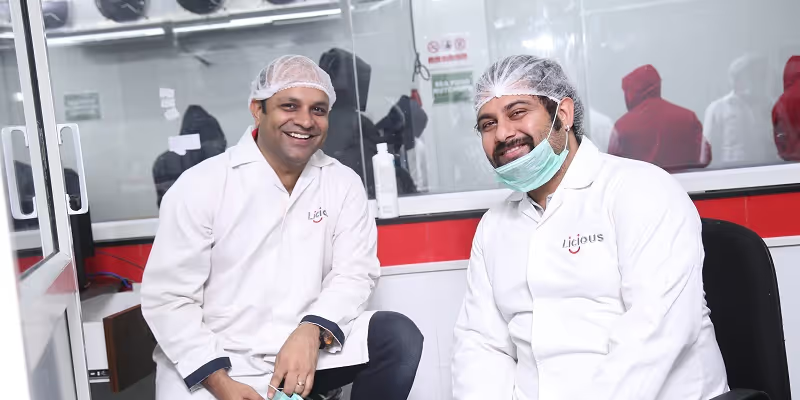Why Bertelsmann India chose Licious to make its first investment in the fresh foods segment
Licious, the online meat brand, on Wednesday has raised $25 million in Series C funding led by Bertelsmann India, Vertex Ventures, UCLA. Existing investors Mayfield India, 3one4 Capital, Sistema Asia Fund and InnoVen Capital also participated in this round. This is the first investment by Bertelsmann India in the fresh foods segment. Investec acted as the exclusive financial advisor to Licious on this transaction.
The funds raised will primarily be used to boost business growth and facilitate its expansion plans in other markets.
Speaking of the fundraise, the founders say they have been able to build a transformational brand in complex and underserved sectors requires conviction and innovation at a fundamental level.

Why choose Licious?
In a conversation with YourStory, Pankaj Makkar, Managing Director, Bertelsmann India Investments explains how direct-to-consumer fresh food startups are redefining how India produces, distributes and buys food. He says,
“All of us have been Licious customers and have sampled the product and love it. But food can also be a difficult business; it is drive and passion that gets the ball rolling. We invested in a Series C round, because the business model is proven and established. It is a more mature bet.”
Licious, with their robust supply chain and seamless farm-to-fork model, Pankaj opines, addresses some of the biggest challenges faced by the consumer when it comes to their purchase experience and quality of product.
The startup has a central processing unit, where the product is reviewed on the parameters of health, safety, environment, and quality for adherence to its fresh chain management norms and then moved to production stage, which comprises a team of expert chefs and skilled butchers who pay attention to detail and understand the importance of neat, clean, and prime cuts.
The investors saw strong value in the team as well.
“The founders have been able to build a strong team. It is one of those rare investments where we found no gap in the team,” says Pankaj.
Focus on organising an unorganised market
On what the investment means for them, Abhay says, “With both existing and new investors sharing our conviction in building an ecosystem that challenges the status quo, we are extremely bullish about our plans going ahead. These funds will greatly aid us in deepening and widening our market presence and enable us to offer new products and services our customers will love."
Licious today is also FSSC 22000 certified. The platform has over 90 percent repeat business monthly.
Starting from raw meats, Licious has also moved into the marinades space. The team believes that their business model allows the company to bolster its business in a sustainable manner.
The entire fresh chain management is maintained at every step of the way including the last mile. The team's endeavour is to run a highly efficient, zero-inventory model by the virtue of which it ensures that no product stays in cold storage for protracted periods and every consumer gets only the freshest meat.
Commenting on the transaction, Ben Mathias, Managing Partner at Vertex Ventures SEA and India says the consumption basket of the Indian consumer is expanding rapidly and in very interesting ways as the per capita disposable income rises.
“With this, we believe that frequency of meat consumption, which was traditionally seen as an occasional meal, will increase significantly. This, along with the rapidly growing trend of digital grocery ordering, presents a great opportunity and we are excited to partner with Abhay, Vivek and the Licious team in their endeavour,” says Ben.
In order to meet the standards of freshness and quality, the team claims to have formulated a zero inventory model. It has built contractual arrangement with large institutional meat vendors who are trained in managing livestock and meat handling techniques.
Joe Bryant, Investment Director, UCLA Investment Company says,
“Licious leaps out as the consumer brand of choice for the evolving Indian who wants an ethically-sourced cut of fresh lamb, goat, fish or chicken conveniently delivered to the home with the click of a button.”
The market
The fresh meat industry is highly fragmented, with the current size in India being around Rs 1,80,000 crore, and the unorganised market (butcher shops) comprising 90 percent.
The digitisation of the market can also improve the value chain operation of the seafood industry. The Indian seafood industry is considered one of the biggest global contributors, exporting a wide range of products. From India, seafood products are shipped to more than 100 countries.
Today, there already are several players like Easymeat, Zapprfresh, Freshtohome, and even BigBasket’s meat segment in the seafood and meat produce segment.
Speaking of this fundraise, Pranav Pai, Founding Partner of 3one4 Capital, which was one of the first investors in Licious says,
“Since their first capital raise with us, the Licious team has proven that a ruthless prioritisation of everything that goes into delivering an uncompromising end-user experience is the secret to building a sustainable and large value proposition. We are delighted to continue supporting this team and to welcome new partners who will help them scale up to realising their grand vision for the space.”






